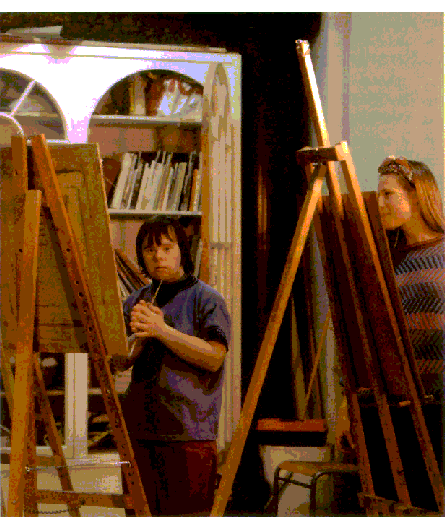
Just because something suddenly becomes possible to do, it will not automatically be think-able (literally) or done.The inheritance of imagination remains, and it is as if already the thoughts upon the new possibilities, how attractive they may be, could be forbidden. Limits are often set by imagination.
With this book we want to arouse your inclination to expose special school and care of the mentally retarded to such changes as the development of technology suddenly has made possible. The book is directed to school leaders and teachers in special schools, personnel within the care of the mentally retarded, personal assistants, principals, civil servants and politicians. And of course to relatives and privately engaged people.
A lot of experience and knowledge is in progress within the Isaac- project. Isaac is a new tool for development: a personal electronic assistant which is tested in the county council of Malmöhus. A lot of the forthcoming examples are from the Isaac- project, but you do not have to be interested in- or connected to Isaac to be able to follow the discussion. During the Isaac-project we have sometimes thought that it might be with mankind and empiric knowledge as it is with arnivorous animals and their prey: if not one of the two moves, it will be invisible. Isaac has been very good to make relations visible by putting people and thoughts in motion.
The title of the book is inspired by, - almost a plagiarism, of an American classic by Henry Viscardi, "Give us the Tools". His book is abouta group of handicapped people and how the make themselves productive by getting tools, and how this led to a fascinating development towards increased human dignity and independence.
The form in the book has often the character of spoken language - we report conversations with each other and to others, principally personnel. It is to be hoped that the book will lead to new thoughts, conversations and development of activities. To make this easier the end of every chapter will contain the chapters key-words and key-thoughts.
We would like to thank those who have contributed with examples in this book. A special thank to those of you who have read, made preliminary discussions and influenced the manuscript: KerstinKarlsson, Gösta Magnusson, Göran Plato, Inga Richard-Olsson, Elisabeth Tayler and Eva Wensmark.
If you, yourself, want to put new or old knowledge in circulation, please write a letter.
CERTEC
LTH
BOX 118
S-22100 LUND
SWEDEN
Fax: +46-46-2224431
e-mail: Bodil.Jonsson@certec.lth.se
Lund 1996
the authors

Next chapter: The differently abled , or back to Table of Contents.